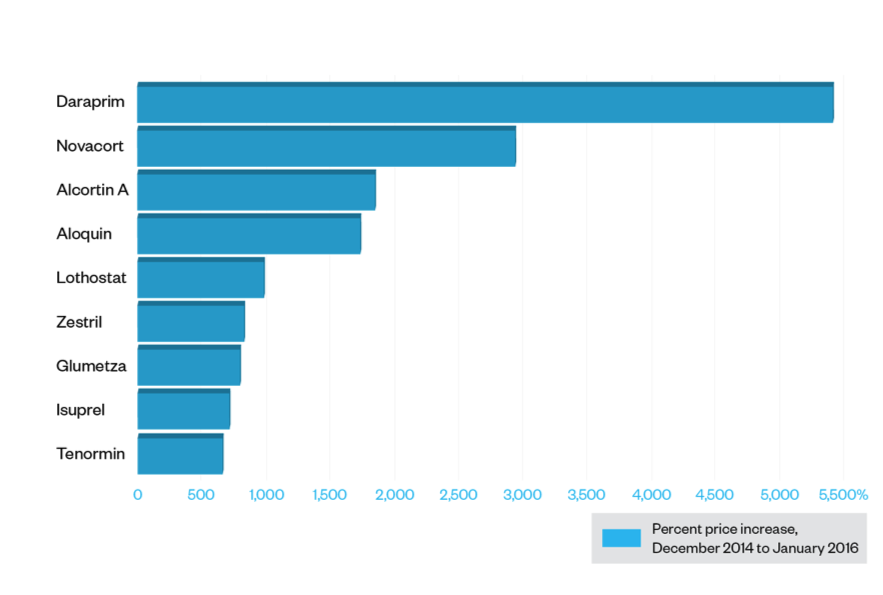Generic Drugs Continue to Skyrocket in Price while Specialty Drugs Take Center Stage
On the minds of every employer today is the cost of specialty drugs, however as industry focus shifts, generic drugs are seeing a dramatic rise in costs. Turing pharmaceuticals and the Daraprim fiasco brought to light a much larger problem. Martin Shkreli leveraged the ongoing trend of purchasing off-patent drugs in niche markets and dramatically raising prices after acquiring the medication. He wasn’t the only one raising prices, many drug manufacturers were playing the game as well. The graph below shows a few medications that had huge price increases last year.
Twenty percent of all generic drugs have spiked in price but the most telling observation is the vast price differential in generic drugs between pharmacies. This is a calculated tactic as consumers have no incentive to shop around. The average generic drug copayment is at $11. In the case of self-insured employers, organizations can pay a $400 price tag versus $25 for a generic drug depending on the employees’ pharmacy decision. Simply narrowing pharmacy networks is shortsighted and does not lend itself to larger savings opportunities. The key to changing the existing model is creating solutions to empower employees with real-time (retail and PBM negotiated) pricing information at pharmacies. Matching employees to custom information in a highly personalized fashion creates huge price savings for employers and can incentivize employees to make the best decision for themselves.
Last year, the retail prescription drug market grew at a staggering 15%, making it the fastest growing healthcare expense. Most experts agree that this trend will not slow down. The current approach to cost control is archaic and is not enough to handle new trends in medication usage. Most employers have implemented a consumer driven plan for health coverage, offloading the responsibility and costs to the employee. These strategies have proven valuable, and proves this approach will work with medications. In the near future, self-insured employers must consider approaches to create consumerism for medication purchasing.
Tesser Health is a digital health company that believes being healthy should be simple. Tesser Health’s products have been recognized by Harvard Health, AARP, US World & News, and Consumer Reports. The company is headquartered in Miami with offices in North Carolina. Today, Tesser Health works with large healthcare provider systems, leading healthcare technology companies, and self-insured employers to lower healthcare costs.
Tags: drug trends, generic drugs, generics, martin shkreli, medication pricing, pharmacy, pharmacy spend, self-funded, self-insured, specialty drugs


